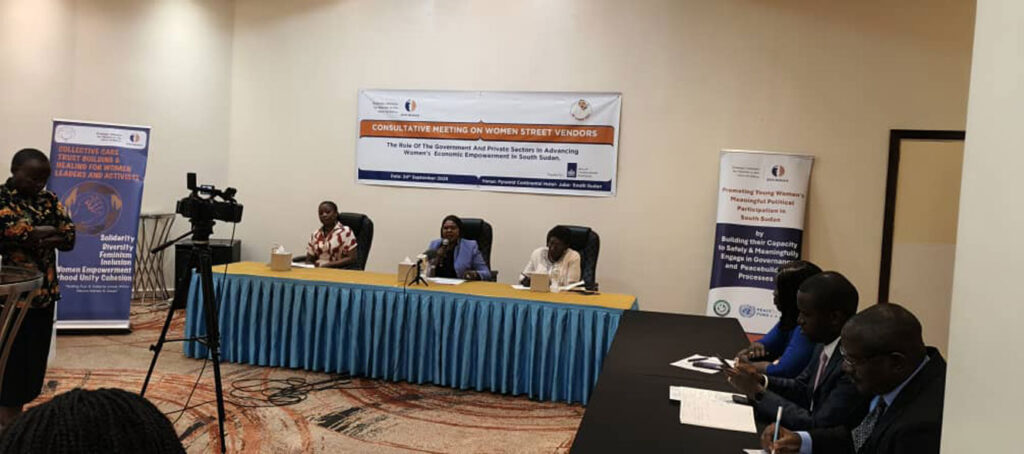
Pyramid Hotel, Juba – South Sudan
Today, 24th September 2025, the Strategic Initiative for Women in the Horn of Africa (SIHA) Network, in partnership with the South Sudan Women Entrepreneurs Association (SSWEA) and women-led organizations in South Sudan, convened a consultative meeting at Pyramid Hotel, Juba, that brought together women street vendors, women-led organizations, private sector representatives, government officials, and development partners. The gathering created an important platform to share experiences, voice challenges, and collectively identify solutions to strengthen women’s economic empowerment across South Sudan.
Women vendors are the backbone of local economies, yet they face constant barriers, including harassment, excessive taxation, poor infrastructure, inflation, limited access to credit, and inadequate social protection. Today’s discussions reaffirmed the urgent need for systemic change to create fair, supportive, and enabling environments where women in the informal sector can thrive.
Key Calls to Action
1. Private Sector:
We call on private companies to:
- Invest in women’s training, mentorship, and business development support to strengthen women’s entrepreneurial skills.
- Expand access to loans, savings, and digital financial services designed specifically for women entrepreneurs.
- Advocate for policies that advance women’s participation in business and the labor market.
- Offer platforms for visibility and market exposure, such as exhibitions and trade fairs like the upcoming Women’s Bazaar.
- Champion women-led innovation, creativity, and sustainable business practices in the informal economy.
2. Government, the International Community, and Local Authorities:
We urge government bodies, local authorities, donors, and development partners to:
- Uphold tax exemptions for women street vendors and ensure fair, transparent regulations for small businesses.
- Establish safe, organized, and accessible market spaces for women entrepreneurs.
- Provide affordable rental spaces and financial support programs to strengthen women’s businesses.
- Expand social protection initiatives targeting women, youth, and vulnerable groups.
- Integrate women’s economic empowerment into national policies, development strategies, and public programs.
3. Women-Led Organizations and Women Market Vendors:
Women vendors and women-led organizations commit to:
- Build strong networks to advocate collectively for rights, opportunities, and recognition.
- Actively participate in capacity-building, mentorship, and learning initiatives.
- Document challenges and successes to inform policy decisions and private sector engagement.
- Promote peer mentorship, knowledge sharing, and collaboration among women entrepreneurs.
- Remain resilient, strategic, and innovative in leveraging available resources and opportunities.
Conclusion
As we conclude today’s consultative meeting, we affirm that women street vendors are indispensable to South Sudan’s economy, society, and future. Their empowerment demands coordinated action, accountability, and long-term support. We call on all stakeholders i.e., government, private sector, donors, NGOs, and women themselves to remove barriers, create opportunities, and amplify the voices of women entrepreneurs. Empowering women is not just an economic necessity; it is a feminist, human, and national imperative. By investing in women, we invest in peace, justice, and a pros
